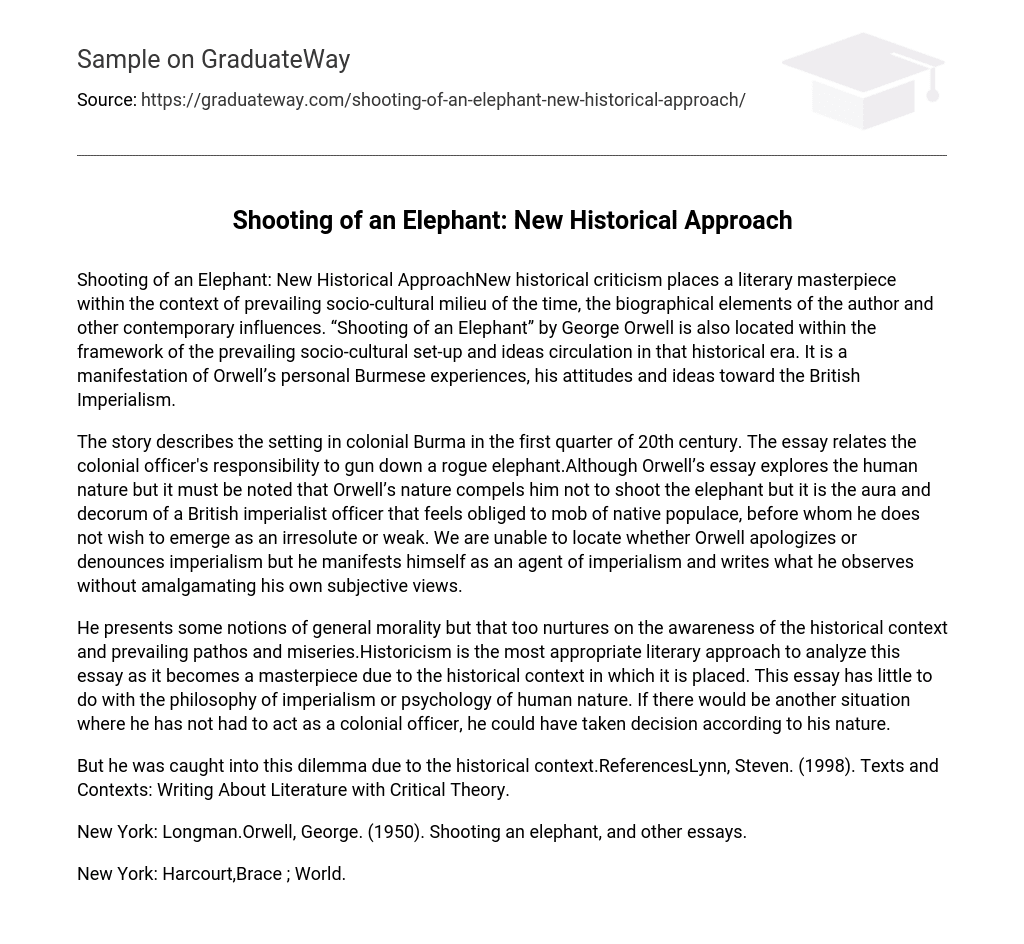New historical criticism places a literary masterpiece within the context of prevailing socio-cultural milieu of the time, the biographical elements of the author and other contemporary influences. “Shooting of an Elephant” by George Orwell is also located within the framework of the prevailing socio-cultural set-up and ideas circulation in that historical era. It is a manifestation of Orwell’s personal Burmese experiences, his attitudes and ideas toward the British Imperialism.
The story describes the setting in colonial Burma in the first quarter of 20th century. The essay relates the colonial officer’s responsibility to gun down a rogue elephant.Although Orwell’s essay explores the human nature but it must be noted that Orwell’s nature compels him not to shoot the elephant but it is the aura and decorum of a British imperialist officer that feels obliged to mob of native populace, before whom he does not wish to emerge as an irresolute or weak. We are unable to locate whether Orwell apologizes or denounces imperialism but he manifests himself as an agent of imperialism and writes what he observes without amalgamating his own subjective views.
He presents some notions of general morality but that too nurtures on the awareness of the historical context and prevailing pathos and miseries.Historicism is the most appropriate literary approach to analyze this essay as it becomes a masterpiece due to the historical context in which it is placed.
This essay has little to do with the philosophy of imperialism or psychology of human nature. If there would be another situation where he has not had to act as a colonial officer, he could have taken decision according to his nature. But he was caught into this dilemma due to the historical context.
References
- Lynn, Steven. (1998). Texts and Contexts: Writing About Literature with Critical Theory.
- New York: Longman.Orwell, George. (1950). Shooting an elephant, and other essays.





